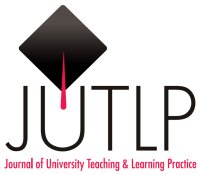First-Year Students' Academic Self-Efficacy Calibration : Differences by Task Type, Domain Specificity, Student Ability, and Over Time.
This research explored whether academic self-efficacy calibration (the match between self-efficacy beliefs and academic outcomes) in first-year psychology students (n=197) differed as a function of task type (written assignment/multiple-choice exam), domain specificity (task level/subject level), ov...
| Institutions: | University of Tasmania University of Bremen |
|---|---|
| Main Authors: | Talsma, Kate, Norris, Kimberley, Schüz, Benjamin |
| Published: |
Student Success v.11 n.2 p.109-121 https://doi.org/10.5204/ssj.1677
2020
|
| Subjects: | |
| Online Access: | https://doi.org/10.5204/ssj.1677 |
Similar Items
-
Why aren't they attending class like they are supposed to? A review into students' perception of the value of class attendance.
by: James, Trixie, et al.
Published: (2019) -
How Do Students Adapt in Response to Academic Failure?
by: Ajjawi, Rola, et al.
Published: (2019) -
Get Set for Success : Using Online Self-Assessments to Motivate First Year Engineering Students to Engage in and Manage Their Learning : Final Report.
by: Burton, Lorelle, et al.
Published: (2014) -
A sense of belonging in Australian higher education : the significance of self-efficacy and the student-educator relationship.
by: Larsen, Ana, et al.
Published: (2022) -
The Effect of a Face-To-Face ScienceReady Preparatory Short Course on University Students' Self-Efficacy.
by: Thalluri, Jyothi, et al.
Published: (2021)
















